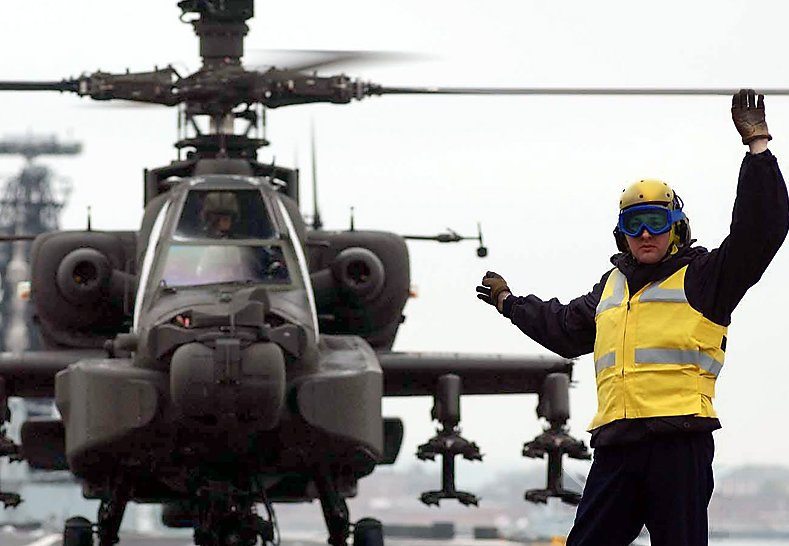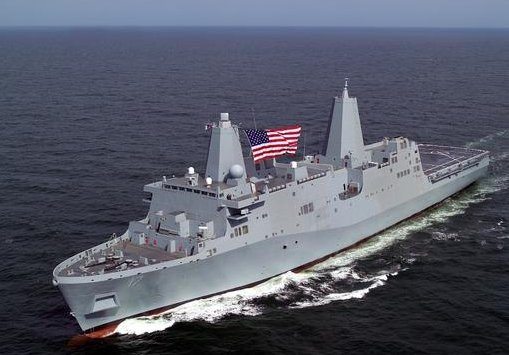The Libyan capital Tripoli has been rocked by a series of large explosions overnight. It follows the use of British Army Apache helicopters, which went into action against Colonel Gadaffi’s forces for the first time at the weekend.
NATO says it was mainly targeting surface to air missile sites and command and control facilities. It claims there were several hits on armoured vehicles near Misrata and Brega.
Major General Nick Pope, the Chief of the Defence Staff’s Strategic Communications Officer, said intelligence on the whereabouts of Gaddafi’s forces was “improving in a very satisfactory manner, despite their efforts to conceal themselves.”
The Secretary of State for Defence Dr Liam Fox said: “This was the first operational mission flown by British Army Apaches at sea. Their deployment from HMS Ocean demonstrates the flexibility of not just the aircraft, but also the Royal Navy’s Responsive Force Task Group, held at very high readiness for contingency operations around the world.
“The additional capabilities now being employed by NATO further reinforce the UK’s enduring commitment and NATO’s determination to enforce UNSCR 1973 and ensure that the people of Libya are free to determine their own future.
“The attack helicopter is yet another potent and formidable aircraft type which has now been added to the NATO forces engaged on this operation. Those who are still supporting Colonel Gaddafi would do well to realise that the best way to remove themselves from danger is to understand that their future lies with the Libyan people, not a discredited regime.”
The Commander of the Royal Navy’s Response Force Task Group, Commodore James Kingwell, said: “This action highlights NATO’s resolve to protect the Libyan people and it is a further example of the increasing pressure on Colonel Muammar Gaddafi and his regime to recognise the will of the international community and cease attacks on his own people.
“The successful and safe operations by Apache Attack Helicopters required a first class performance by the sailors, soldiers and Royal Marines across the Royal Navy’s Response Force Task Group. I am very proud of all of their work so far which yet again underlines the versatility of this force.
“The RFTG brings together a range of assets that, by operating from the sea, gives maximum flexibility to bring our military capabilities to bear wherever they are needed, at short notice, now and in the future. We remain ready for further operations.”











